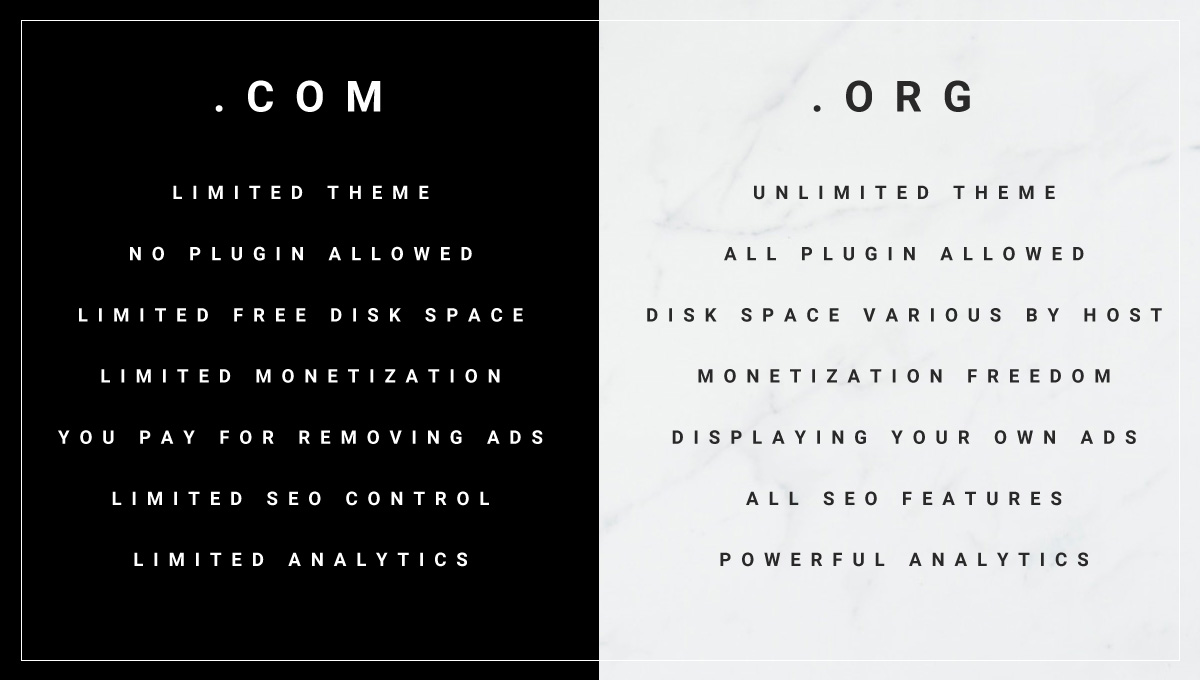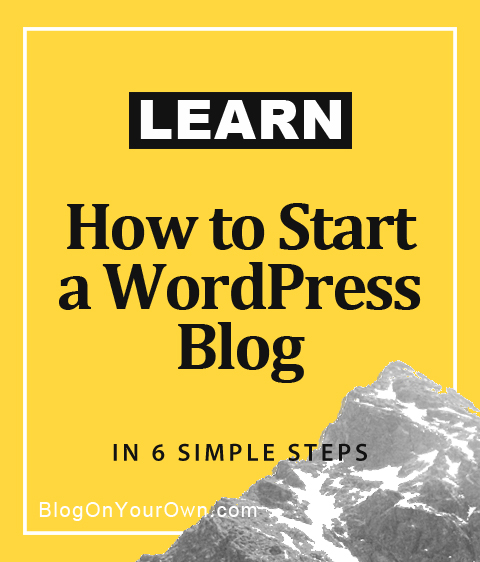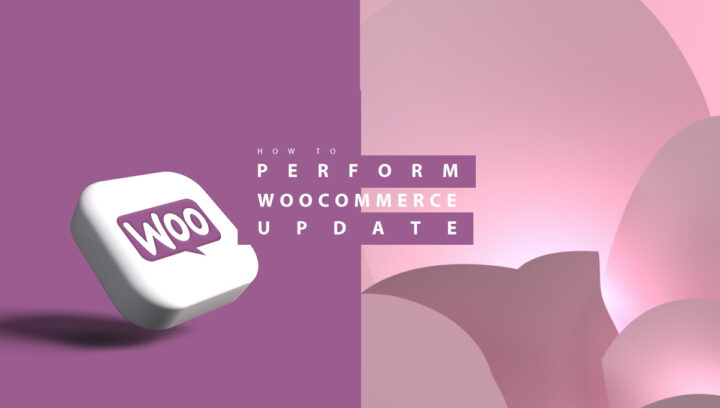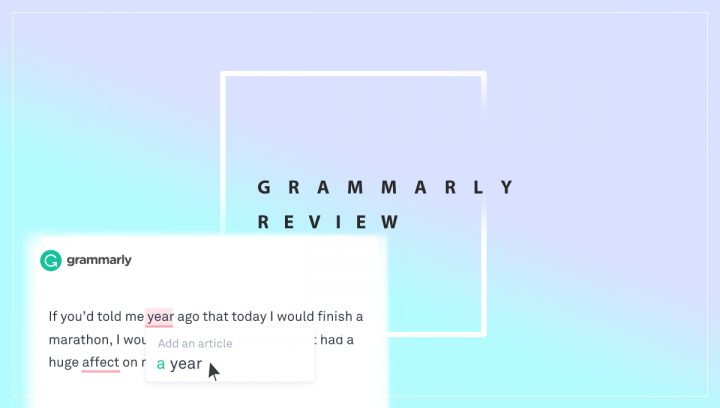Blogging has become a widespread phenomenon, especially in the last few years. Millions of articles and multimedia content inundating the web on a daily basis. It has even rivaled more traditional and highly professional mainstream media, in all kinds of fields and domains. Therefore, in this article, I will try to explain what is a blog. I will answer the question about the benefits of blogging. And in a few steps, I will show you how to start blogging for beginners.
Do you know what a blog is?
Blogging has managed to create a vast and enthusiastically interactive platform on the net. This online space has helped so many creators build expansive communities. Through expressing themselves and sharing their experiences and their creative vision.
Are you ready to start your blog? We’ll help you get started. All tips on how to do this can be found in our article: How to start a blog. Start today. It is effortless!
I am sure that you have heard the word blog or blogging at some point in your life. Whether it was through coworkers, on a news story or even on television. It has become part of the internet jargon and culture. Though, you might still be confused about what is meant by a blog. Or what the process of blogging requires, and how you can tell that a particular website is a blog.

What is a blog? Blog definition
You may also like
Most Popular Blogs
You can easily find a blog definition on the internet. One of them says that blog is a debatable or informative website published on the World Wide Web consisting of discrete, often informal text entries (posts) in the style of a journal. Another defines a blog as a website containing its own experiences of writers or groups of authors, observations, opinions, etc.
Pretty much all blog definitions will tell you that it is a website that the owner or owners updates regularly. Where you can find posts that are more often than not written informally or conversationally. Sometimes these posts could be qualified as diary-style text entries.
Etymology
The word blog in itself is a mash-up of two other words, web and log. This basically stands for logging text entries on the internet. These entries or posts are generally organized in reverse chronological order. Showing the most recent posts on the home page or main page of a blog.
What is the importance of blog
Up until 2010, blogs were mostly managed by one person or a small group of individuals. And mainly focused on one particular dominant theme. However, in the past ten years, there has been a slight shift towards a different angle. Many authors’ blogs began to appear. These multi-author blogs offer posts written by a multitude of authors. With a penchant towards a more professional style of editing and displaying content.
Blogs don’t necessarily have to stick to the personal communication realm. And blog posts do not fundamentally need to be diary-like. Nowadays, so many businesses and companies have also joined the trend in hiring social media professionals, and practitioners to create and manage blogs. To communicate with their customers, grow their presence on the web, and expand their reach.
This community of bloggers and avid blog readers is highly interactive and participatory that it has come to be known as the blogosphere.
You may also like: Best Personal Blogs in 2020.
Interaction with the readers
Read more about
Best Tech Blogs to Follow
The success of the blog results from the fact that its allowed the author and the reader to connect. This interaction builds relationships. It’s like talking, tightening ties. You get to know the opinion of others who are interested in the same topic. Thanks to this, you can better match the content to the reader. You can make it more interesting.
I hope that I covered here what is the meaning of the blog. I explained a blog definition enough, and we can go further.
But if you are still confused about what makes a blog a blog, it is entirely reasonable. A lot of businesses combine blogging techniques with those of running a business website. To build their brand more enticing and appealing to the public.
Read more about: The Best Blogs & Top Bloggers.
What is the difference between a blog and a website
So to put it simply, what differentiates a blog from a website is the fact that blogs, as previously stated, are regularly updated. Whether it’s a fashion and beauty blog talking about the latest trends in clothing and cosmetics. Or a cooking blog – showcasing gourmet cooking and baking recipes. Or a travel blog with entries of picturesque images, and scenery accompanied by an intricate description, and stories behind those images and locations.
All blogs have new posts, and content added regularly. It could be once every day or several times a week, and so on. Not only that, but perhaps the most essential feature of a blog is the fact that there is a comment section. That allows the reader to react to blog posts. The reader can start and engage in a meaningful conversation, either with the author or other people interested in the same ideas and type of content.
What is blogging
What you need to know about blogging, which basically means the action of writing and maintaining a blog, is that anyone can do it. It may seem very hard and confusing at first, as there are so many options available that you can’t clearly envision a precise starting point. Once you get to learn the basics you can get started in creating and managing your own blog right away.
Some statistics
The total number of blogs on a small amount of the mainstream platforms is estimated at around 440 million and over – An astronomical number as it is. So imagine how much it is all over the world. It must, for sure, exceed that by an infinite amount.
According to WordPress, users produce about 74.7 million new posts each month. And over 409 million people view more than 21.9 billion pages each month.
These statistics aren’t supposed to scare you away. But on the contrary, this is supposed to show you that content is being consumed so quickly, and frequently, and so widely than it ever has before.
So when you hear about the number of blogs already out there on the web, don’t get discouraged. Or don’t think that it is too farfetched to create a blog of your own and have your voice drowned out by the millions of other voices out there.
You may also like: The benefits of blogging.
Reasons why you should start blogging
Self-expression
There are countless reasons why you should join the blogosphere. Namely, it’s a space that you personally manipulate. You choose what to post and when. It’s a great way to express yourself, share your opinion and contribute to the flow, and spreading of information.
Explore yourself
It also prompts you to challenge yourself and explore different perspectives and angles while, for example, writing an article that requires some research or a more focused, and collected way of putting your thoughts, and wording them out.
Improving skills
Related Posts
How To Write an About Me Page (with Examples)
This also helps you with developing your writing and expanding your knowledge through interacting and engaging in a conversational manner with your audience. Sometimes, certain topics can also help strike up discussions that might have been a bit uncomfortable to talk about if it weren’t for the virtual space and perhaps even the sense of anonymity that come with it.
You might be wondering what is the reason behind the wide success of this form of communication and why a lot of people are opting for setting up blogs as of lately. And the reason or reasons are simple and make a lot of sense when you get to understand the mechanisms of blogging and how it works exactly.
For starters, search engines are more prone to showcase new and more recent content rather than websites that haven’t been updated in a while, and as a result, blogging’s prime characteristic of being frequently updated makes it a favorable candidate based on the standards search engines rely on to present results. This further contributes to the optimization of search engines and displays how powerful of a tool it is in that process.
Bringing more potential customers to your website
Blogging is very useful in terms of providing your audience with updates regarding your products. If you’re part of a business or you’re an entrepreneur, it comes in as a very handy tool to communicate with customers, provide them with information and efficient and also highly reliable customer service. You can answer all of their questions and help guide them through the services you provide and how they can benefit from it.
Building a relationship
Most importantly, it helps create a certain sense of familiarity where walls and barriers are broken down between buyer and seller for instance.
It makes the experience much more personable as, say shopping via television or magazines and it facilitates the process as both parties could be engaging from the safety of their homes, as so many people are opting for online shopping rather than in-store shopping (51% of American have a preference for online shopping, and that number is only growing).
Of course, this is if your blog is more business-based than it is a personal one, and even personal blogs tend to be very successful as well.
Love to share
Practically everyone loves to read funny or lighthearted stories or even weird encounters people have been through, and the diary-style entries in personal blogs tend to share first-hand experiences, which can result in a chain reaction where visitors and regulars can also talk about their similar experiences in the comment and how they relate to the content you posted.
This helps create a strong rapport between the blogger and their audience.
Though sometimes, personal blogs can also document some of the hardships and struggles in life and can be very intense at times. A pertinent example is Derek Miller’s blog, a Canadian writer and editor who used it to document his struggle with cancer.
Flexibility
Another reason why a lot of entrepreneurs and social media influencers have turned to blog is because of how flexible it is, whether it be the scheduling of posts (as you can do that beforehand, with pre-written posts pending in the queued posts section and getting posted at the exact time and date you specified while editing options), or the content of those posts.
As a blogger, you get to decide when and what your readership is exposed to when they visit your site, as you can also guide the flow of discussion in the comments section.
Make money
And the best reason yet is you can make money out of it. And popular blogs earn a lot. Along with your products and services, you can make extra income through advertisement and affiliate products through AdSense or other feed ad networks.
Though one of the downsides to blogging can be building and maintaining a readership. This certainly takes a while and the payoff isn’t immediate and can be very time consuming to achieve. But through perseverance, you can definitely build momentum and expand from there.
You may also like: How To Make Money Online.
So you decided to start, now what?
Fortunately, creating a blog is relatively easy, if you follow certain steps. It also is very affordable. You can set it up on a free hosting platform or you can also go the better route (which I recommend) of buying your own domain name (self-hosted blog) and pay a yearly fee to keep it up. Why is it so important you will learn here.
If you do not know how to start and need help, please read my step by step guide on how to start a blog.
6 steps on how to start on your own:
- Pick a blog platform
- Find a hosting provider
- Designing your blog
- Add content
- Promoting your blog
- Monetize
Step One: Pick a platform
So the first step in this process is to pick a blog platform. Choosing where you want to create your blog is of crucial importance. There are some platforms that are easier to manage than others.
WordPress.org is the most popular one. This is one of the biggest blogging platforms on the web. You can download it by using a page WordPress.org. It’s 100% free (you only need a web host & domain name). It offers countless widgets and themes to pick from on how you want your site layout to look like. And it’s very easy to personalize.
WordPress.org is the choice
The most important thing is that WordPress.org is a self-hosted CMS which means that you are the owner of your own content, you are managing it by yourself. No one will remove the content you have created without your permission. You decide by yourself what kind of advertisements appear on your blog or how you make money on blogging. This gives you the opportunity of flexibility as well as the opportunity of controlling your own work. And this is what it’s all about, right?
WordPress comes in two flavors:
- WordPress.org is the self-hosted version of WordPress whose software is open source and available for free for anyone (you only need a web host & domain name).
- WordPress.com (same as Tumblr, or Medium) is free of charge blogging platform, which is a fully hosted version of WordPress. These types of platforms control your content. They have a lot of constraints, and contrary to what you may think, it is difficult to relocate the content, which you have been creating there for years.
REMEMBER
WordPress.org IS NOT WordPress.com
These are completely different things. I always recommend WordPress.org.

Free Blog vs. Self-hosted
Free blog platforms
Free blogs do have many limitations. You can’t monetize it, and you also can’t get full access to the themes database. Instead, you will only be able to use the free basic themes the web host offers. But it is not everything. Here, your content will never belong to you. Your site can be deleted at any time, and your content will disappear.
Self-hosted blogs
Self-hosted blogs are the way to go when blogging. It is much simpler, you will feel more at ease, and you can moderate things at your own pace. You also get full access to your content, and no one has the right to interfere, modify or delete it. You can customize your website or change anything you want. And you have full control over your website.
This is many times better than having someone else be the decider of your blog quality. You can run and manage your own blog without having anyone edit it or remove it.
You also decide which kind of advertisement is going to be displayed. Unlike free blogs, where ads can be completely different from the niche of your content. This makes it even easier for you to make the blog a better profit generator. And at the same time, it makes your niche more homogeneous and coherent.
Step Two: Find a Hosting Provider
For a self-hosted WordPress website, you need your hosting from the proper hosting provider (I recommend Bluehost), your domain name and a free CMS system (WordPress is the best solution) that will allow you to manage your site. Please note that when you purchase hosting using our Bluehost affiliate link, they compensate us, which helps us make our content & themes free of charge to you. Know that we recommend only products, tools or services that we have tested.
Hosting Provider is ensuring a server space for your website. If the site is present in the server space, then people can find it on the internet. In other words, your blog needs the server to be visible on the web.
Hundreds of thousands of web hosts exist, the majority of which meet the basic requirements of WordPress, however finding the best one may prove to be quite a challenge.
Step Three: Layout design
You may also like
This step depends on what you are going to use your blog for. For instance, if you intend to start a photography blog. You might opt for themes that put more emphasis on images than on text.
If you want to create a lifestyle blog, you need a layout with different tabs and categories. But also, clear titles, large photos, and a readable font.
A commercial blog, where you intend to sell your personal product or line. It should probably have a search bar. To help visitors navigate smoothly, and find the products they are most interested in.
WordPress.org offers a myriad of free themes that are best suited for each and every one of your interests. So choose wisely.
Sometimes you’ll need to customize a theme or plugin, so you may want help from an experienced developer. Here you may read where to find the best WordPress developers.
Step Four: Add content
You may also like
Once you’ve established your general plan and approach concerning blogging, along with your objectives and goals. You need to think of the content you want to put out there and how you want to display it.
If you want to grow your readership and attract new visitors, keeping your blog active is a key element.
It’s best to map the articles you want to publish in your personalized calendar. You will then have a general overview of what your site will look like. This will help you get a clearer vision of what your schedule will look like. And when you need to write and prepare new content.
If you don’t know how to start, read this article: How to write a new post in WordPress.
Step Five: Promotion
The best way to promote and reach a specific target audience is through social media. If you want to build an audience, you need to reach out to other bloggers. And perhaps even plan some collaboration out to get publicity and spread the word about your blog.
Depending on what your blog focuses on, and what your blogging niche is. You can easily contact media outlets and influencers through their social media profiles to ask for advice.
Step Six: Monetize
This step concerns people who are interested in getting revenue from blogging and want to pursue blogging as a profession.
You can definitely add additional income depending on what your blog is about. Say you run a lifestyle blog, you can reach out to companies to strike some kind of deal where you promote their product on one of your posts in exchange for certain privileges or an X amount of money, depending on the longevity of the post and the traffic your blog gets, etc.
You can also run ads through Google AdSense, and get paid when visitors click on those ads.
Just remember that the process of creating, and establishing a blog that gets revenue, and solid monthly traffic of visitors takes a lot of time. And it can be a bit frustrating. But being patient and persevering in creating content regularly, and not giving up can go a long way in fulfilling yor dreams.
You may also like: The Best Personal Finance Blogs For 2020.
Summary
Now you know what a blog is, and how to create one, so get to work. Try it yourself and do not worry; it is not so tricky!!!
Read my step by step guide on how to start a blog and join other happy bloggers.




Well written good post. Blogging is always an option for those who love to write. Over time, blogging has become a good way to make money. One good advantage is that, Google love blogs due to the freshness of content.
Love to hear that, Saurav.
Excellent article. Very well written. I liked the part “Building Relationship” most.
Glad to hear, tarulahsan. Thank you for stopping by.